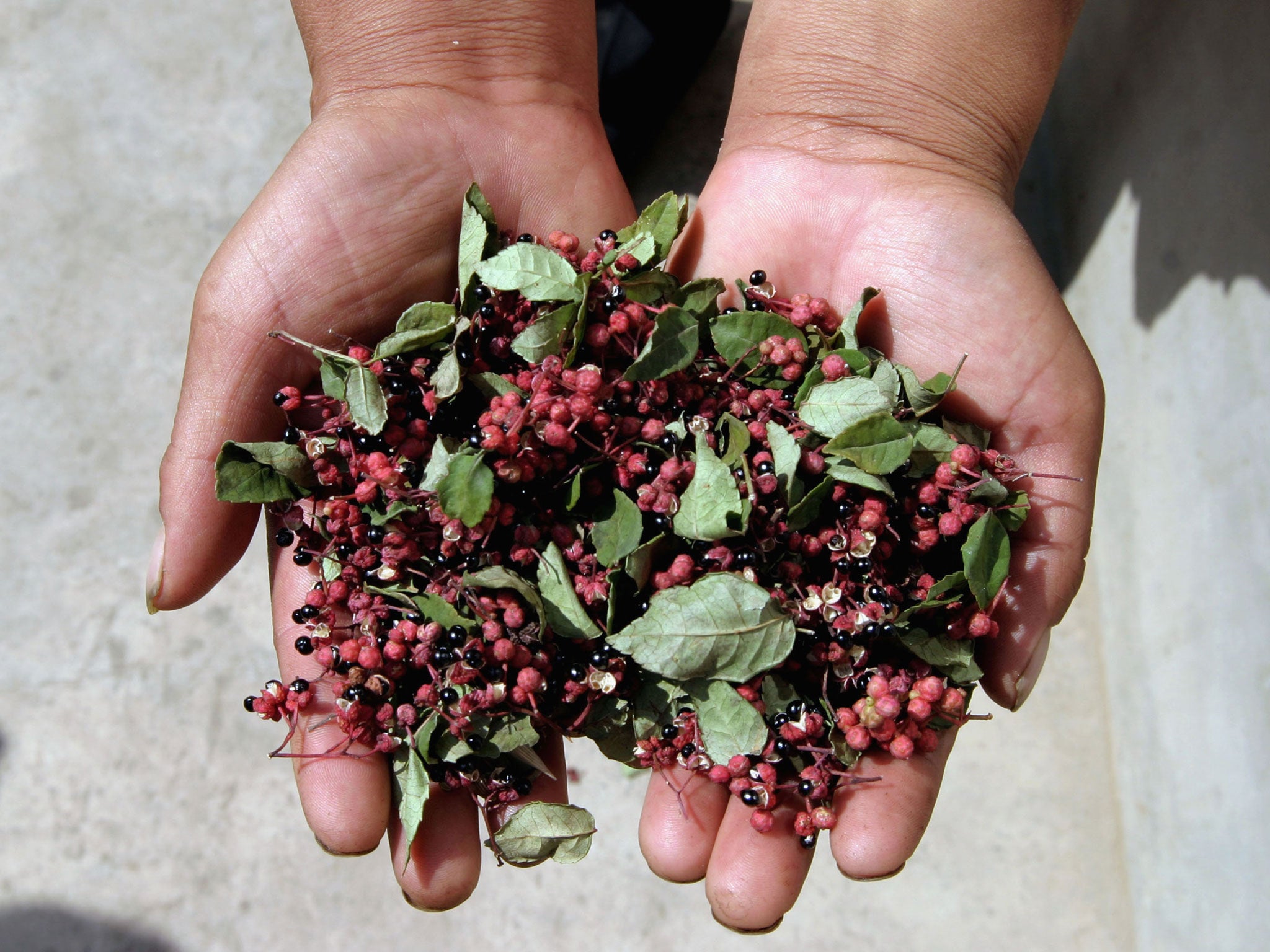What's the difference between a Szechuan pepper and a vibrator?

Your support helps us to tell the story
From reproductive rights to climate change to Big Tech, The Independent is on the ground when the story is developing. Whether it's investigating the financials of Elon Musk's pro-Trump PAC or producing our latest documentary, 'The A Word', which shines a light on the American women fighting for reproductive rights, we know how important it is to parse out the facts from the messaging.
At such a critical moment in US history, we need reporters on the ground. Your donation allows us to keep sending journalists to speak to both sides of the story.
The Independent is trusted by Americans across the entire political spectrum. And unlike many other quality news outlets, we choose not to lock Americans out of our reporting and analysis with paywalls. We believe quality journalism should be available to everyone, paid for by those who can afford it.
Your support makes all the difference.Not much, at least according to top scientists from a prestigious university in London, who claim that the sensation caused by eating the unique Chinese peppercorn feels exactly the same as pressing a vibrator to your lips.
In fact, recent experiments showed that when they tried to rub pepper extract on the lips of volunteers, almost none of them could tell whether they were eating peppers or undergoing mechanical stimulation.
It sounds far-fetched perhaps, but the scientists, researchers at UCL, one of the UK's top universities, hope it might lead to new ways of reducing chronic pain in sufferers of conditions like carpal tunnel syndrome or even paralysis.
Szechuan peppercorn is unique among all other ingredients in producing the sensation of vibration on the lips, but the study reveals that stimuli caused by chemicals in the pepper have the same effect on the human brain as actual touch does.
The scientists now believe that their findings could be used to find treatments for people with nerve-related chronic pain like carpal tunnel syndrome or diabetic neuropathy, or paralysis – not to mention foodies looking for a true taste explosion.
The peppers, which aren’t spicy, cause a sensation of about 50 taps per second, which is thought to result from an active ingredient called sanshool.
Nobuhiro Hagura, a researcher at UCL and the lead author of the study, told ABC Science that his team wanted to see whether human ‘light-touch’ nerve fibres were activated in the same way by the peppers as they are through mechanical stimulation.
They tested how participants reacted to Szechuan peppers, alcohol, water and vibrators applied to their lower lips. A few thought they felt a tingle when touching alcohol or water, but most struggled to tell the difference in sensation between peppers and vibrators.
"We knew from studies in animals that the active ingredient in Szechuan pepper selectively activates the light touch fibres," said Hagura. "This made us interested in whether this unusual way of activating light touch fibres actually produces a conscious sensation of touch."
"Tingling sensations occur in many chronic pain conditions, but remain poorly understood," says Hagura. "We hope that laboratory studies of the tingling sensations caused by sanshool could help to clarify the brain processes underlying these sensations, and how they are related to pain."
There are a few other foodstuffs that send touch-like information to the brain, including menthol, which produces a cooling sensation, while chili can cause heat or even pain.
Join our commenting forum
Join thought-provoking conversations, follow other Independent readers and see their replies
Comments